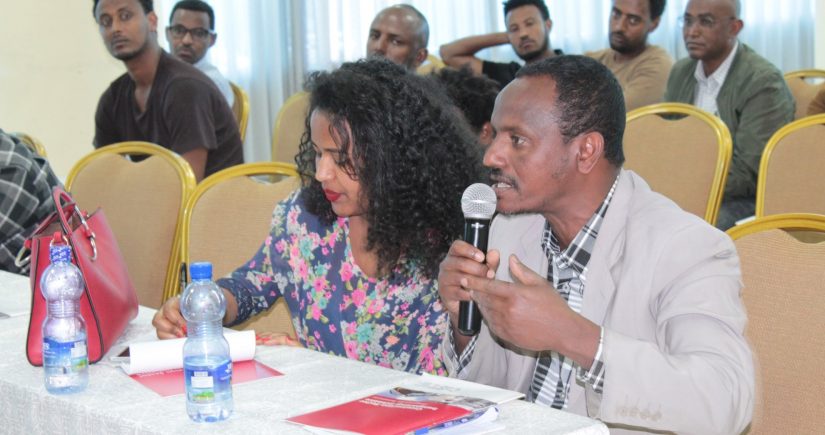Today, CoST Ethiopia publishes its Third Assurance Report which looks at 14 building projects with a collective value of US$ 78.2 million. The report finds that, on average, procuring entities of these projects disclosed 68% of the CoST Infrastructure Data Standard (IDS) which is adapted to the Ethiopian context. The CoST Ethiopia IDS looked at the level of transparency on the infrastructure projects included in the process, compared against 70 data points (or items) across key stages of the project cycle.
To drum home the need to move towards increased disclosure, CoST Ethiopia brought together key stakeholders at a validation event last month to concentrate on the main findings from the reports, including its key issues of concern. The event was attended by procuring entities included within the assurance process alongside key decision-makers from the Ministry of Finance and Economic Cooperation, Ministry of Construction, the media and CoST Ethiopia Multi-Stakeholder Group (MSG) members.
Addressing attendees, Mr Ataklti Gidey, Vice Commissioner of the Federal Ethics and Anti-Corruption Commission stressed the importance of continuing to push for a culture of disclosure, on those included with CoST Assurance and more broadly, within the infrastructure sector to fully exploit the benefits of transparency and ensure it is instituted long term.
The CoST Ethiopia Third Assurance Report found a number of other key issues of concern in relation to non-compliance of procurement regulations and poor project preparation particularly related to time and cost overruns. In the worst case, one project had overrun by over three years and the average time overrun of all the projects was 103%. Likewise, concerning cost overruns, in the worst case, one project had exceeded its original budget by 25% and the average cost excess of all projects was 10.6%. Other issues concerned design variations and low competition in the procurement process.
Whilst CoST Ethiopia’s report indicates there is still work to be done in moving Ethiopia towards increased infrastructure transparency, procuring entities have demonstrated a commitment to improving and a greater understanding of CoST Assurance.
At the validation event, entity representatives called for such practices to be upheld to enable transparency and accountability. Dr. Mekonen Ayana, Vice President of one entity included in the process, Adama Science and Technology University, told attendees that the university’s senior management had picked out many lessons from the report which it had taken on board to perform better in the future.
Today CoST Ethiopia is convening key media outlets to focus on the report’s key messages so they can take forward social accountability actions and disseminate findings to the public. Over the coming months the report will also be used to continue engagement with regulatory institutions such as Ministry of Construction and the Federal Public Procurement and Property Administration Agency. In terms of the next assurance process steps, CoST Ethiopia will soon undertake its fourth assurance process, involving procuring entities from transport, building and water sectors.
The 14 reports, broken down per project, are available here.
